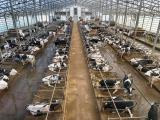Sep 16, 2005 (CIDRAP News) – US officials this week promoted international efforts to prepare for a potential influenza pandemic, announcing an international flu surveillance partnership and promising aid to Vietnam for avian and human flu surveillance.
President George W. Bush announced the international partnership when he addressed the United Nations General Assembly Sep 14. Health and Human Services Secretary Mike Leavitt followed up yesterday by announcing plans to go to Southeast Asia next month to discuss the pandemic threat with leaders there.
Also yesterday, the US ambassador to Vietnam, Michael Marine, said the United States would give Vietnam—the country hit hardest by H5N1 avian flu—$2.5 million over the next 5 years for flu surveillance. The aid will begin with a $500,000 grant from the Centers for Disease Control and Prevention (CDC) to Vietnam's National Institute of Hygiene and Epidemiology, according to an Agence France-Presse (AFP) report.
International partnership
In his UN speech, Bush said, "If left unchallenged, this [avian flu] virus could become the first pandemic of the 21st century. We must not allow that to happen. Today I'm announcing a new international partnership on avian and pandemic influenza. The partnership requires countries that face an outbreak to immediately share information and provide samples to the World Health Organization (WHO).
"By requiring transparency, we can respond more rapidly to dangerous outbreaks and stop them on time. Many nations have already joined this partnership; we invite all nations to participate. It's essential that we work together, and as we do so, we will fulfill a moral duty to protect our citizens, and heal the sick, and comfort the afflicted."
Yesterday Leavitt announced he would lead a US delegation to Thailand, Cambodia, Laos, and Vietnam next month to meet with heads of state and health ministers concerning flu issues. "I will be seeking their critical involvement and personal commitment to preparedness and response," he said in a prepared statement discussing the new partnership.
"In Southeast Asia, I will be negotiating agreements with the most-affected nations to offer assistance to build their capacity to identify outbreaks and respond rapidly when needed," Leavitt said. "We feel a common and genuine sense of urgency."
He also said, "On the international front, we must have complete transparency. We must have joint rapid response capabilities. We must conduct cooperative surveillance. We must share epidemiological data and samples with each other and with the World Health Organization. We must have commitment from the highest political levels in countries around the world to adhere to these principles."
An AFP report today said the WHO, the UN Food and Agriculture Organization, and at least 16 countries already have agreed to join the partnership. The countries listed were Argentina, Australia, Britain, Cambodia, Canada, China, India, Japan, Malaysia, New Zealand, Nigeria, Russia, Singapore, Thailand, and Vietnam.
US Under Secretary of State Paula Dobriansky told AFP, "In the coming weeks, we plan to hold a senior officials meeting of all partners in Washington to identify steps to achieve transparency, to improve donor coordination, to build capacity and develop containment strategies."
The WHO welcomed the partnership, according to AFP reports. WHO spokesman Iain Simpson said the agency strongly endorsed the group's goals, but he was waiting for more information on how countries could be required to share samples.
"As with any international agreement, the question is enforcement," he said.
Aid to Vietnam
Commenting on the aid to Vietnam, Marine said, as quoted by AFP, "This network focuses on systematic collection of information about influenza, information about what viruses are causing it, how they are being spread, and how fast."
The CDC has signed an agreement with Vietnam to provide $500,000 for equipment and laboratory reagents to help improve lab-based surveillance for flu and to develop a flu surveillance network in Vietnam, Dr. Tim Uyeki of the CDC's influenza branch in Atlanta told CIDRAP News.
This is not the first time the CDC has helped Vietnam in its battle with avian flu, "but it's the most substantial amount of funding," Uyeki said. He said the CDC has assisted Vietnam's National Institute of Hygiene and Epidemiology in Hanoi with human flu–related activities since 1998, providing training, reagents, and specimen testing. The CDC has also collaborated with the institute on avian flu activities since 2001, he said.
Marine said the funding is expected to total $2.5 million over the next 5 years but is subject to availability, according to AFP. He said the assistance plan was not directly related to the partnership announced by Bush.
See also:
Text of President Bush's speech to the UN
http://georgewbush-whitehouse.archives.gov/news/releases/2005/09/20050914.html
Leavitt statement on the international partnership
















